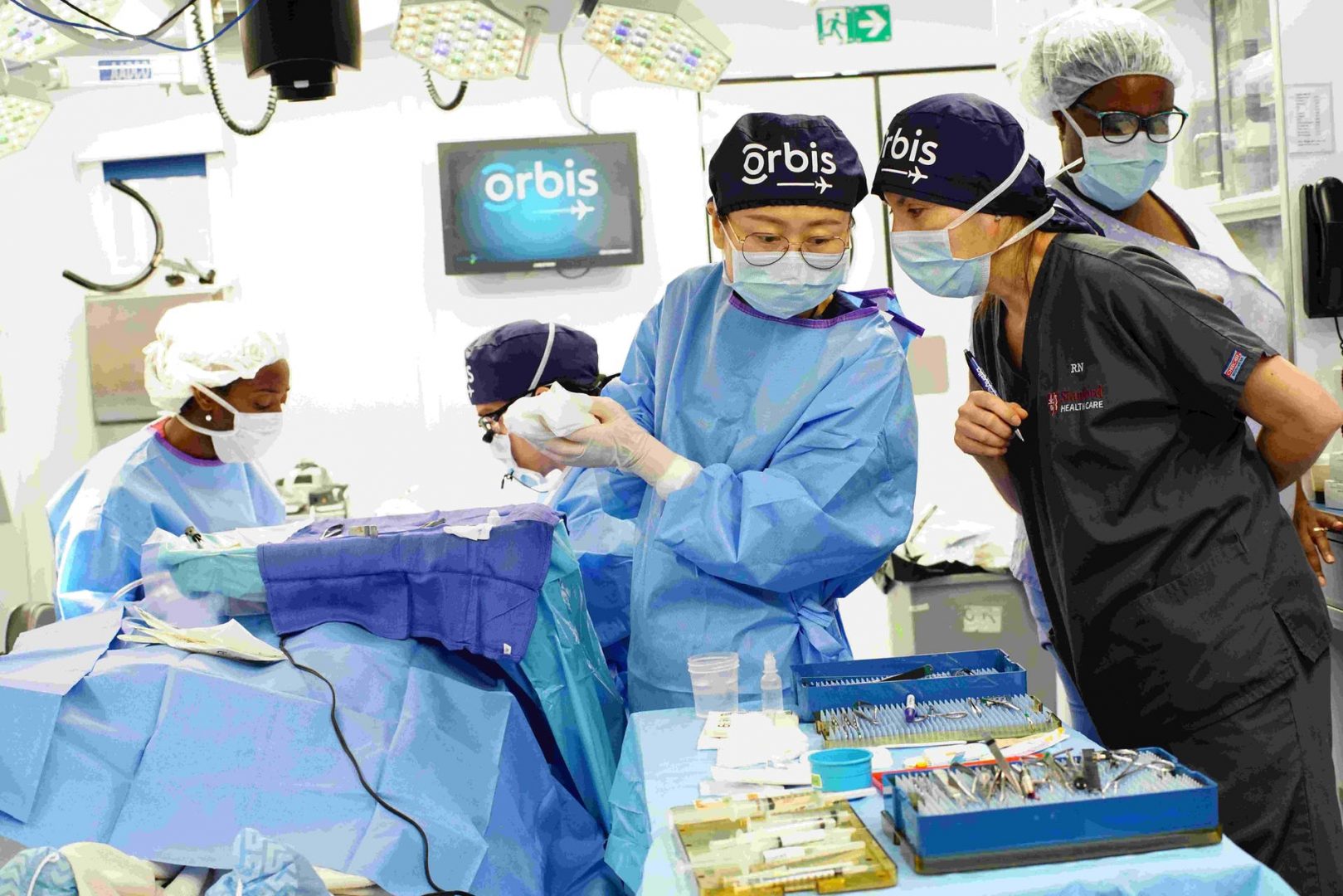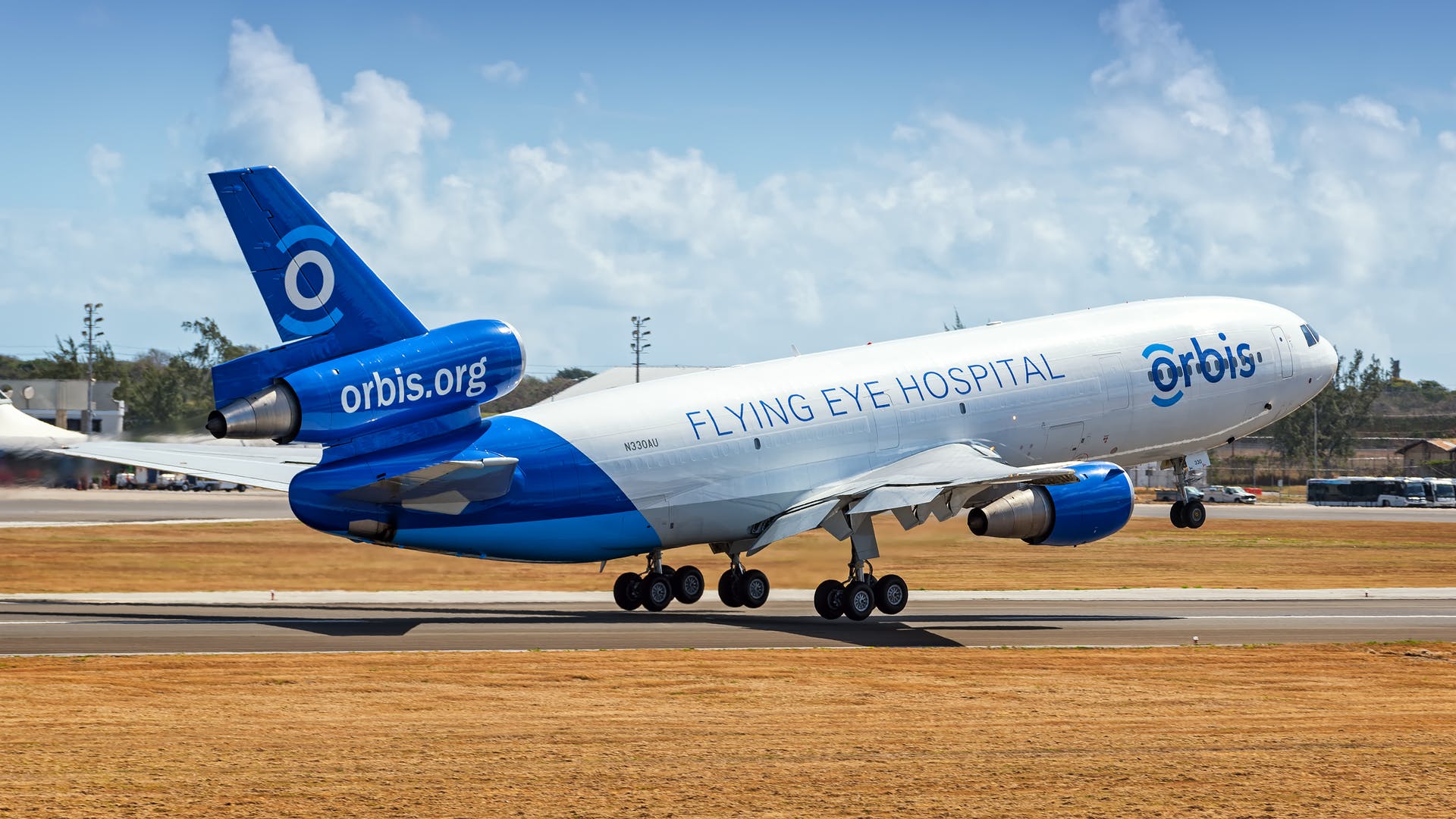Orbis Flying Eye: It’s A Bird, It’s A Plane, It’s A… Hospital?
While our health system in New Zealand is far from perfect, it’s easy for many of us to take for granted how relatively easy and affordable it is to access medical care when compared to much of the world. Not only do so many countries lack the equipment and resources to perform essential surgeries and procedures, their healthcare workers who devote their lives to helping others often sadly lack the training and knowledge to provide adequate treatment.
This is what makes the Orbis Flying Eye Hospital such as simple, yet genius concept. A full non-profit project, funded entirely by donations and operated by volunteers, the function of the Flying Eye Hospital is fairly straightforward; bring medical and optical professionals and equipment to areas of the world that lack the resources on the ground and, maybe even more crucially, give local health professionals the skills to care for their own once the plane leaves for its next destination. While the first Flying Eye debuted all the back in the 1980’s, the third and current generation of the Flying Eye uses a MD-10 aircraft which was generously donated by FedEx in 2016. “Patient care is always number one but the bigger number – the one that I focus on – is how many people have we trained”, says ophthalmologist Dr. Hunter Cherwek, who serves as VP of clinical services with Orbis International. “How many skills have we transferred, how much equipment have we donated? To me, that’s what’s the game changer.”

The plane is fitted with a full operating room, allowing the travelling doctors to perform procedures and surgeries in a safe and professional environment, as well as classroom where Orbis’ team of expert volunteers can impart their years of knowledge and experience to help equip local healthcare workers prepare for the future once the Flying Eye heads to its next spot.
Understandably, COVID has provided some unique challenges for the Flying Eye program, who haven’t been able to jet from country to country due to international restrictions. That hasn’t stopped them from making a big impact however, as they have followed a similar route to many other educational institutions and brought the Flying Eye Hospital experience online. The online courses have been accessed by doctors and nurses from all over the world, allowing Orbis to continue its work while the world deals with a health crisis of a different kind. But while the COVID dominates the headlines, blindness and other optical ailments remain an alarming presence in the world, particularly in areas where access to medical care is scarce. Studies have suggested that 90% of all vision loss is preventable or treatable meaning that projects like the Flying Eye Hospital can make a significant difference in solving this worldwide problem.
“To me, (Flying Eye) is the best example of functional diplomacy I’ve ever seen in the world. We literally will have all six continents working together and the only thing they care about is the patient under the drape and teaching each other,” Dr. Cherwek adds. With the world slowly but surely getting back to something resembling normality, the hope is that Orbis will have the Flying Eye back in the skies once more, helping the world see clearly again one patient at a time.
Images courtesy of Orbis International.

